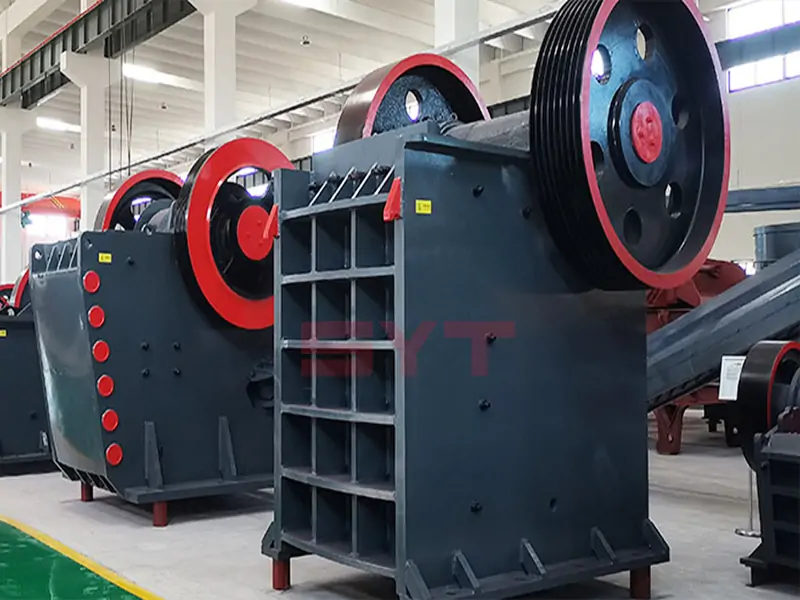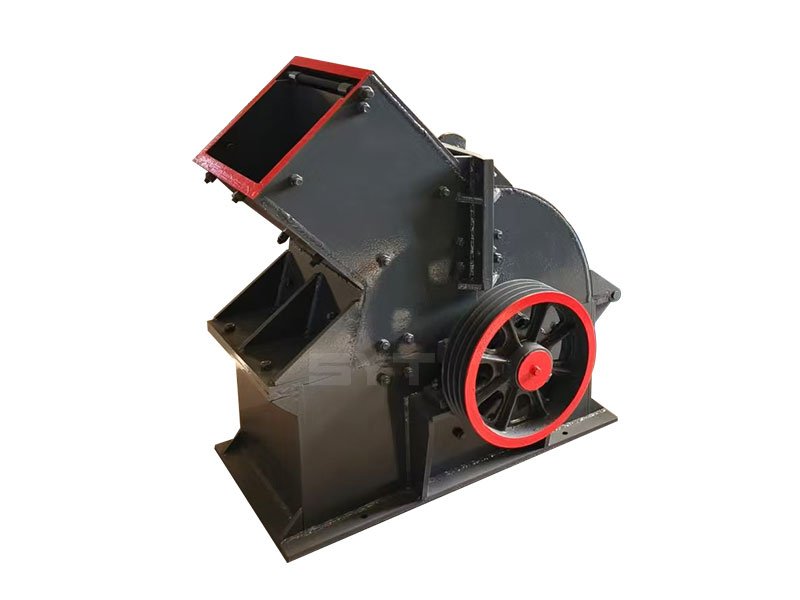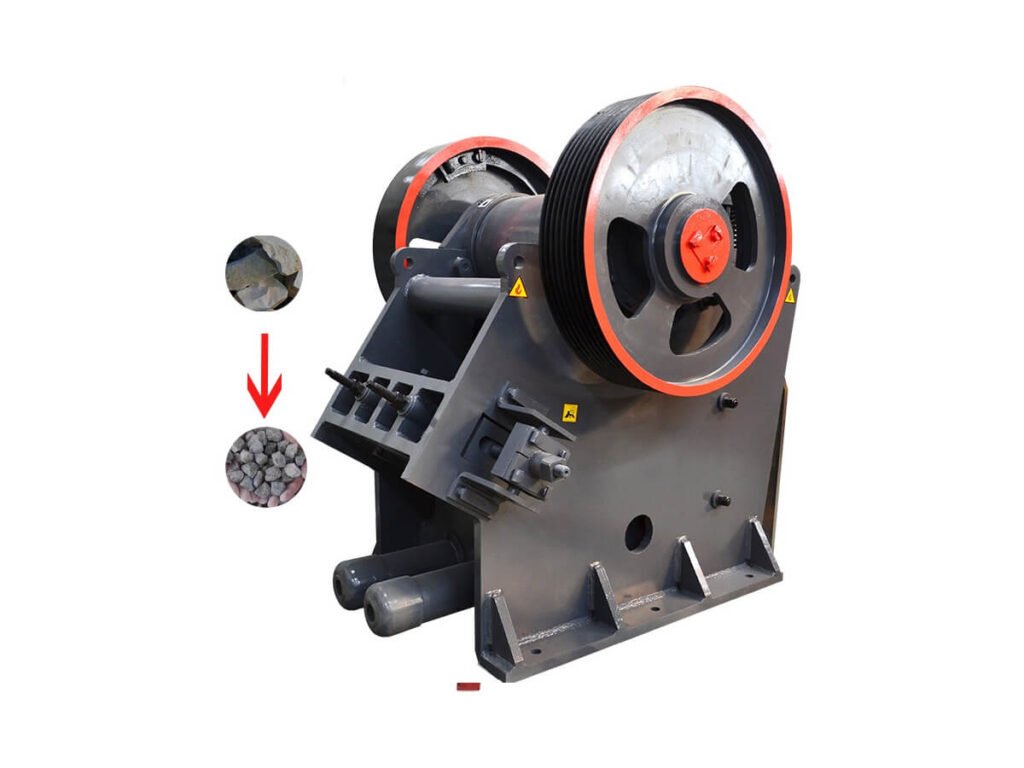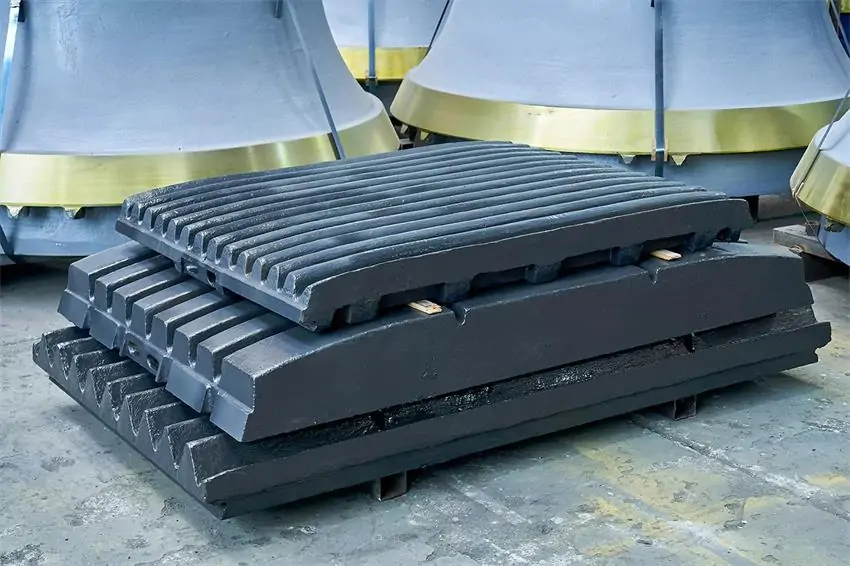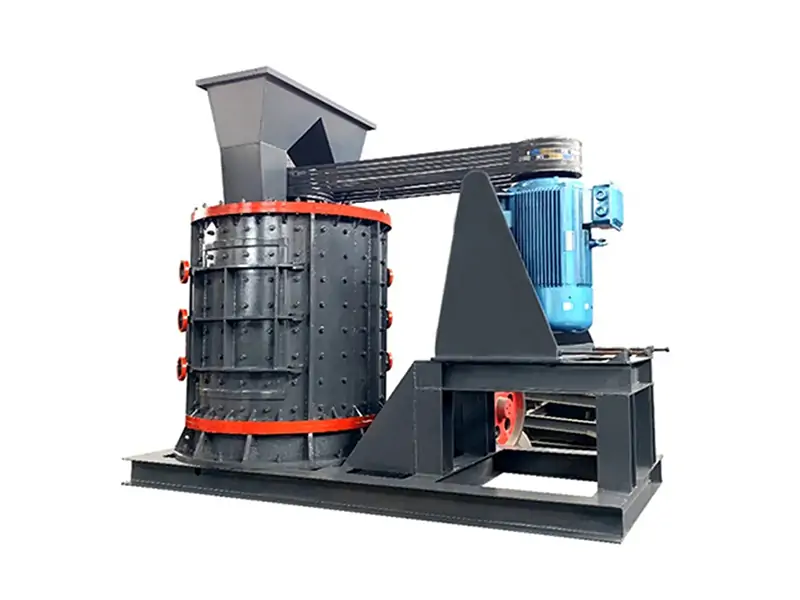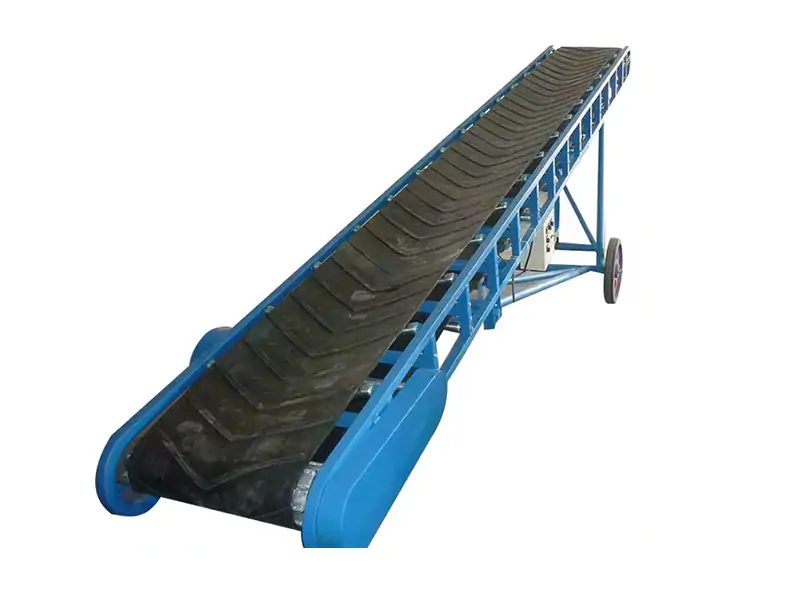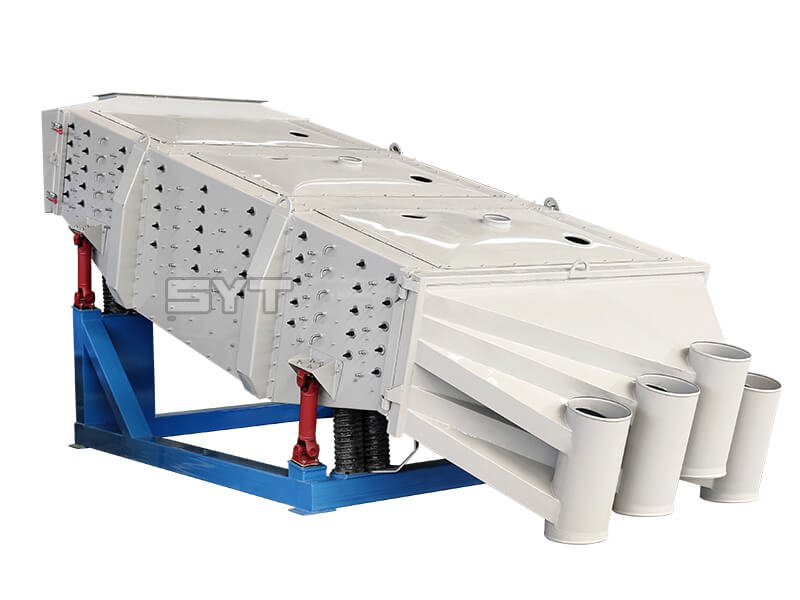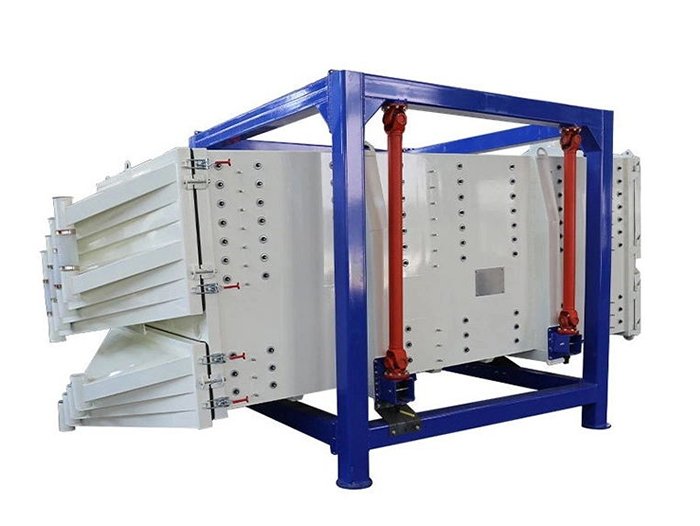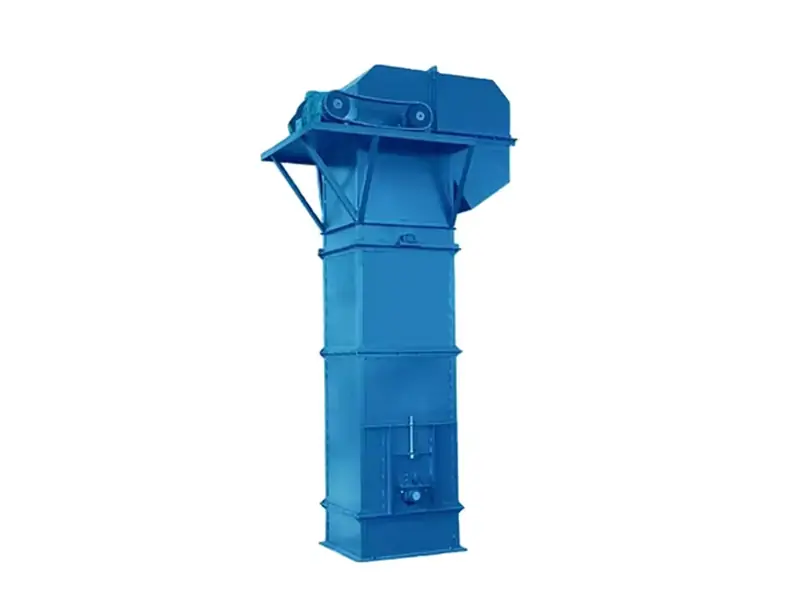Jaw crushers are a type of crushing equipment widely used in industries such as mining and construction. They are mainly used to crush large pieces of material into smaller particles. According to their design and working principle, there are multiple types of jaw crushers, each with its own unique advantages and applicable scenarios. Understanding these different types of jaw crushers can help companies choose the right equipment to meet different needs.
Table of Contents
Three Common Types of Jaw Crusher Machine
Single toggle jaw crusher
Single toggle jaw crusher is one of the most common types, with a simple structure and high cost performance. The movable jaw of this equipment crushes the material through alternating motion with the fixed jaw plate through a single toggle mechanism. Its crushing principle is based on compression and is suitable for processing materials below medium hardness.

Single-swing jaw crusher 
Working Principle
- Advantages: simple structure, easy to maintain and repair. Relatively low cost, suitable for large-scale production. Suitable for processing medium-soft materials such as limestone, coal, etc.
- Disadvantages: Poor crushing effect on materials with higher hardness. The crushing particle size is large and cannot meet the requirements for ultrafine particles. Single toggle jaw crushers are commonly used in mining, construction and metallurgical industries, and are particularly suitable for processing medium-soft materials such as limestone, sandstone, and coal.

Double toggle jaw crusher
Double toggle jaw crusher is different from single toggle type. It has two swing points, in which the movable jaw swings between the two points, so that the material is more compressed and squeezed during the crushing process. This design improves the crushing force and is particularly suitable for crushing materials with higher hardness.

- Advantages: Large crushing ratio, suitable for processing materials with higher hardness. Strong crushing capacity and relatively uniform material particle size. Relatively simple structure, easy to operate and maintain.
- Disadvantages: The equipment is large in size and occupies more space. The initial investment cost is high. Double toggle jaw crusher is suitable for crushing materials with higher hardness such as ore, quartz, granite, etc., and is often used in large-scale mining and metallurgical industries.
Compound pendulum jaw crusher
The compound pendulum jaw crusher is a more traditional equipment. Its structural design is similar to that of the single pendulum jaw crusher, but it is different in the motion trajectory. The movable jaw of the compound pendulum jaw crusher presents a non-single toggle trajectory, which increases the crushing efficiency and is suitable for processing harder materials.
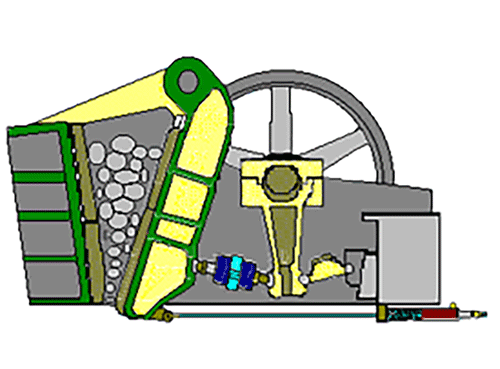
- Advantages: High crushing efficiency, suitable for processing large pieces of material. Large crushing ratio and strong adaptability. Simple design, suitable for most common applications.
- Disadvantages: When adapting to extremely hard materials, it has greater wear and requires frequent maintenance. It is less efficient when processing fine-grained materials. Compound toggle jaw crusher is suitable for most common ores and construction waste, such as limestone, quartzite, etc.
Choose the right jaw crusher Machine
To choose the right jaw crusher, you need to consider multiple factors, including the hardness of the material, the requirements for crushing particle size, the output demand and the maintenance cost of the equipment. Here are some selection suggestions:
- Medium soft materials: For medium soft materials, such as limestone, coal, etc., single toggle jaw crusher is more suitable and has a lower investment cost.
- Materials with higher hardness: If you need to process materials with higher hardness, such as granite, ore, etc., you can choose a double toggle or hydraulic jaw crusher, which has stronger crushing capacity.
- Output requirements: For crushing tasks with higher output requirements, you can choose a compound toggle jaw crusher, which has more stable crushing performance.
Conclusion
Different types of jaw crushers are adapted to different production needs and material characteristics. Understanding the advantages and disadvantages of each type, as well as the specific scenarios in which it is applicable, can help companies make the right choice. When choosing a jaw crusher, you should comprehensively consider the performance, cost and maintenance requirements of the equipment to ensure that it meets production requirements.
Related Articles
- What Is The Difference Between Hammer Crusher And Jaw Crusher
- How To Prevent Dust In Sand Making Production Line
